Talented Sushi Chef Successfully Tackles Pirates on Somalian Coast
Unlike buccaneers such as Blackbeard, Captain Hook, and Jack Sparrow, pirates nowadays are far from charming. Although they still inspire a lot of dread amongst boatmen and coastal towns, Somalian pirates might be amongst the sea’s most active and fearsome scavengers.
When a Japanese sushi chef heard of this, he had a unique idea to tackle the problem.
Real Life Pirates
The Somalian coast is abundant with marine life, and until recently, still relatively unexploited. It wasn’t until the beginning of the 1980s that the government, through a coalition between the Ministry of Fisheries and the Coastal Development Agency, decided to pursue a plan to boost the fishing industry.
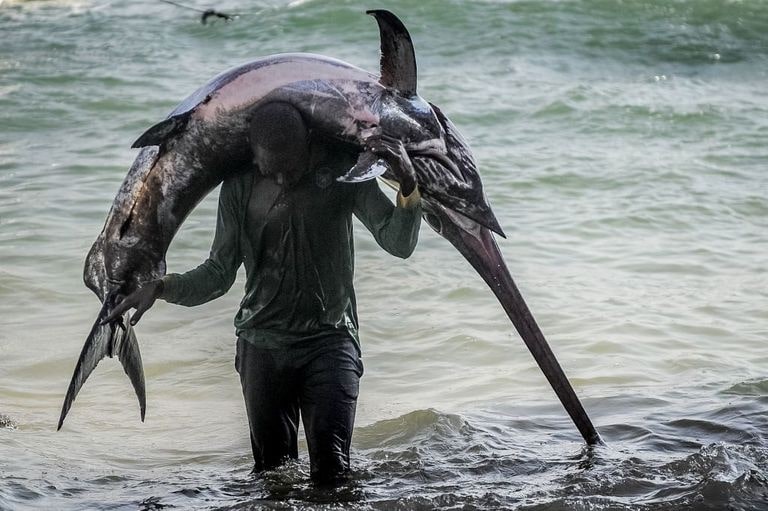
Source: Yaplakal
Foreign investors got involved and saw the potential of the region. It was bound to be a money-making success. The area needed investment, but it was certainly doable. But there were severe issues that would need assessment.
A Rigorous Operation
As well as supporting the small-scale operations by authorizing permits for the local fishermen, the Somali government took action by also granting licenses to foreign nations, such as Italy and Iraq. But this wasn’t taken well by the people.
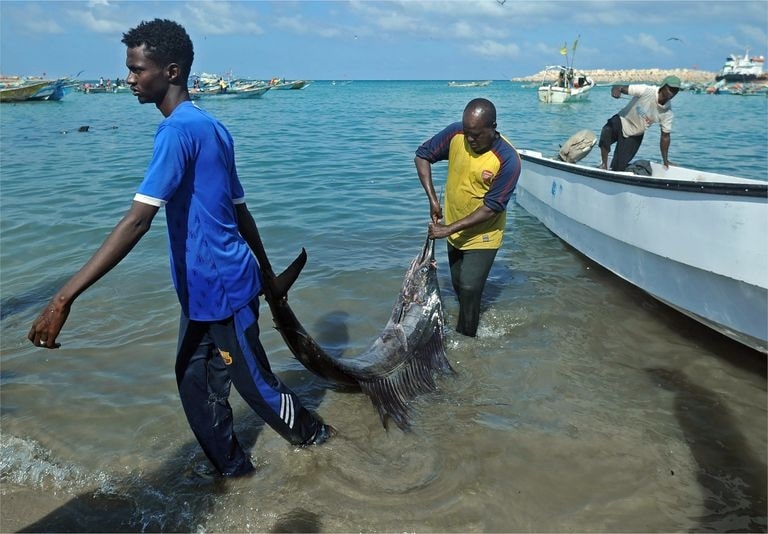
Source: Ifex
While the fishing industry was gaining momentum, Somalia was plunged into internal conflict, and much of the country was thrown into turmoil. The promise of economic benefits and jobs for the people began to fade, making it difficult to regain its former growth.
The Downfall
Amongst the civil and governmental turmoil, the Somali Navy gradually fell apart due to the lack of a functioning government and political instability. Without proper leadership and guidance, the military could not maintain its operations and ultimately dissolved.
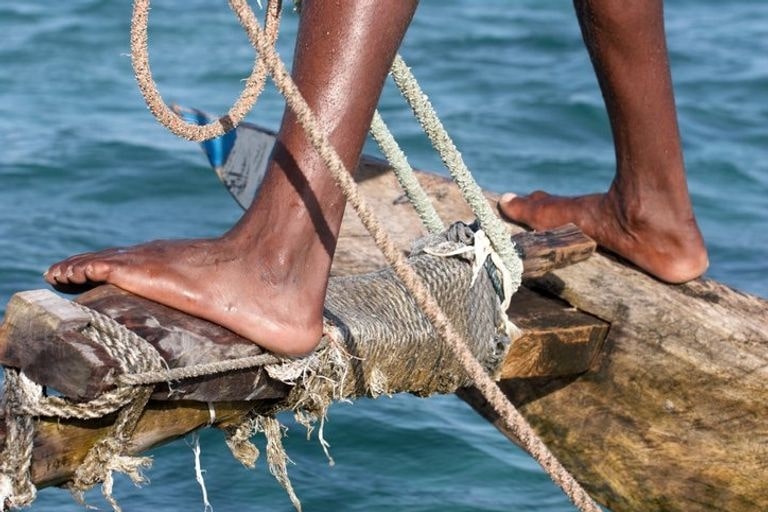
Source: Tumblr
This left the country’s pristine waters unguarded, which caused other countries to fish illegally in Somali waters and even dispose of their waste there. This situation caused a lot of harm to the local fishing industry and the marine environment—it was a disaster on all fronts.
People Were Not Happy
As a result of these unstable events, people decided to take action. It wasn’t fair that other nations were depleting their natural resources and polluting their waters. That is the reason groups of Somali fishermen decided to protect their seas in unconventional ways.

Source: Tumblr
They started using weapons to fend off ships from other countries and large corporations. And so piracy began, where hijacking, assault, and aggression became standard practices. The government was unable to tackle the problem.
An Expected Progression
What started off as a reaction to the unstable situation and lack of government soon turned the coasts of Somalia into no-man’s land. At first, the pirates only went after fishing boats, which were the root cause of the situation, but as the operation grew, so did the targets.
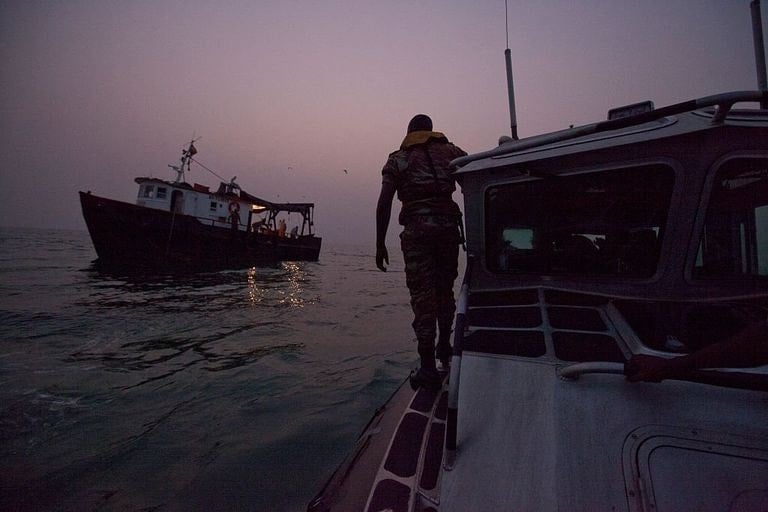
Source: Corbisimages
They soon targeted cargo vessels and other boats that ventured through the unregulated waters. In addition, the pirates were operating in the Indian Ocean and the Arabian Sea, conducting raids and hijacking ships.
The Maersk Alabama Hijack
In April 2009, one of the most significant container ship assaults by Somali pirates took place. The impressive Maersk Alabama, a US cargo ship, was sailing to Kenya from Oman. And even though the crew of 20 had already received anti-piracy training, they could never have expected what happened to them.
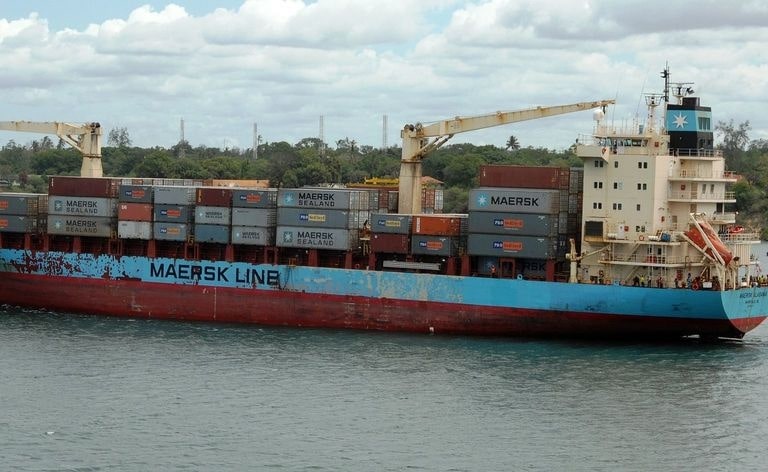
Source: Alamy
When the ship, which contained around 19,000 tons of cargo, was around 280 miles off the Somalian coast, it was spotted by a small Somalian pirate ship with a crew of merely four young people.
Anti-Piracy Training
Because Somalian waters are so pirate-riddled, it’s common practice for cargo and fishing vessel crews to take anti-piracy training and perform extensive drills before crossing the area. This training includes first-aid, anti-boarding defense, basic safety, and even the use of firearms.
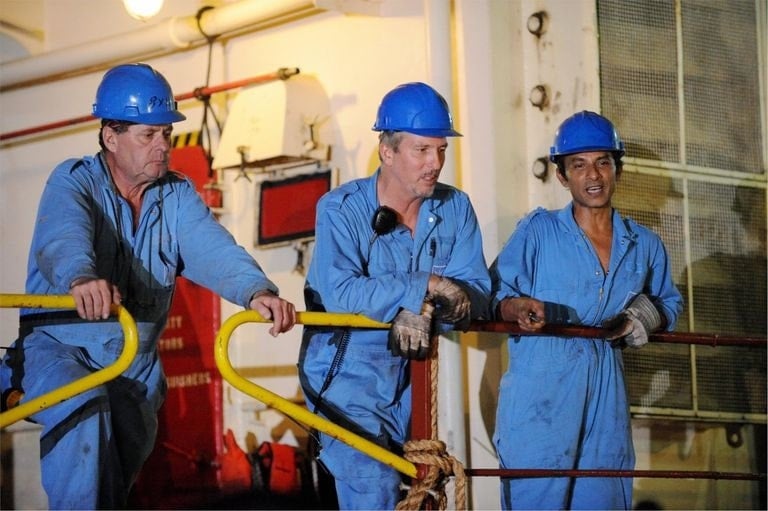
Source: Welt
All of the 23 crew members of the Alabama had trained a day prior to their departure. But given the container ship’s dimensions, they weren’t expecting to be under any type of menace. Little did they know that they would quickly catch the eye of pirates.
The Night Attack
Four pirates between the ages of 15 and 18 managed to make their way onto the cargo ship inconspicuously. When they were noticed, crew members were able to secure the engine control rooms and shut down all other systems to prevent the pirates from fully taking over the vessel.
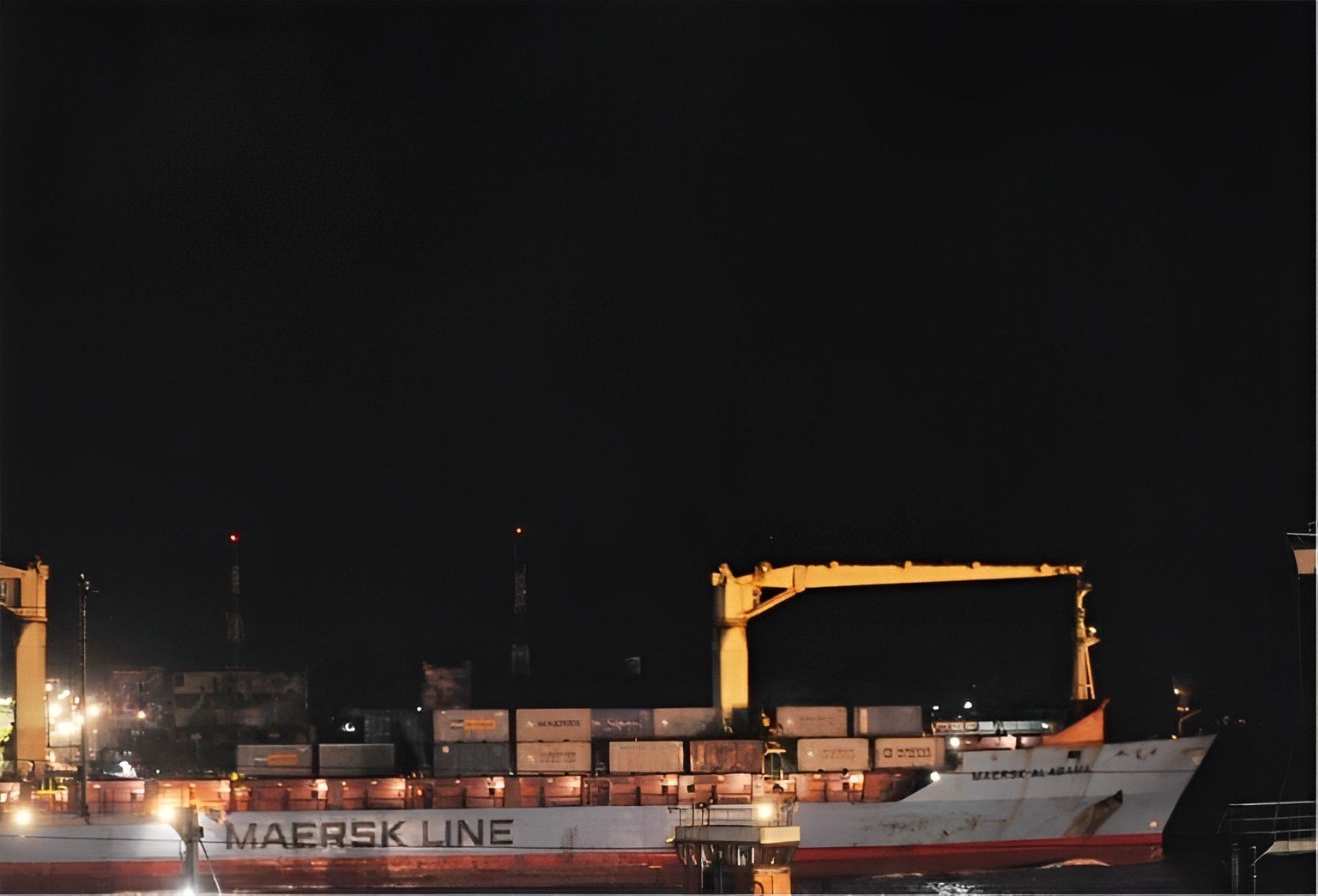
Source: Jikoman
Although they took hostage Captain Phillips and other important members of the crew, the marauders weren’t able to fully take control of the ship. The pitch-black boat became a labyrinth, and the crew wasn’t going without a fight.
Unfolding Events
Desperate, the young criminals’ options were beginning to narrow. They knew they wouldn’t make it since they couldn’t take over the ship and couldn’t confront all of the crew members. They decided to abduct the captain and flee the massive container ship in a lifeboat.
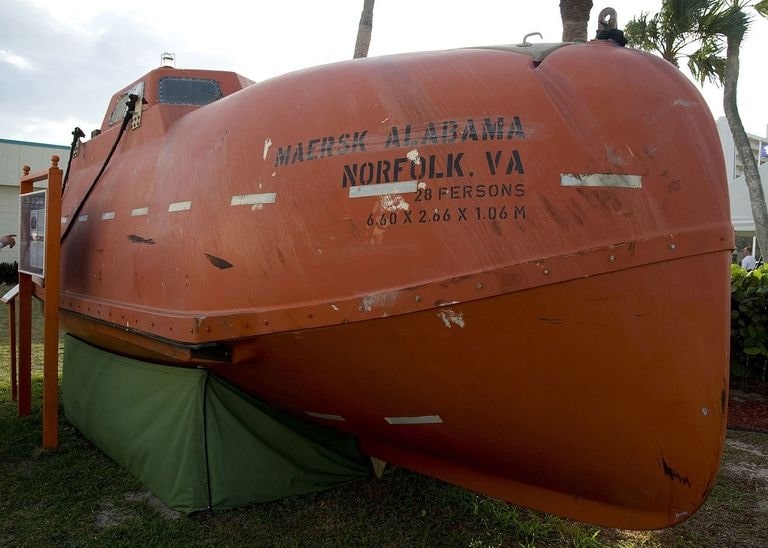
Source: Alamy
Hoping that other pirates would come to their aid, they sailed away from the situation as fast as possible. The US Navy had already been contacted and was on its way. They would be in a world of trouble soon.
A Successful Story
Because of the US Navy’s interference, the Alabama was successfully saved with no casualties from the crew members. This incident led to a successful book by Captain Phillips and, subsequently, a movie starring Tom Hanks as the lead called Captain Phillips.
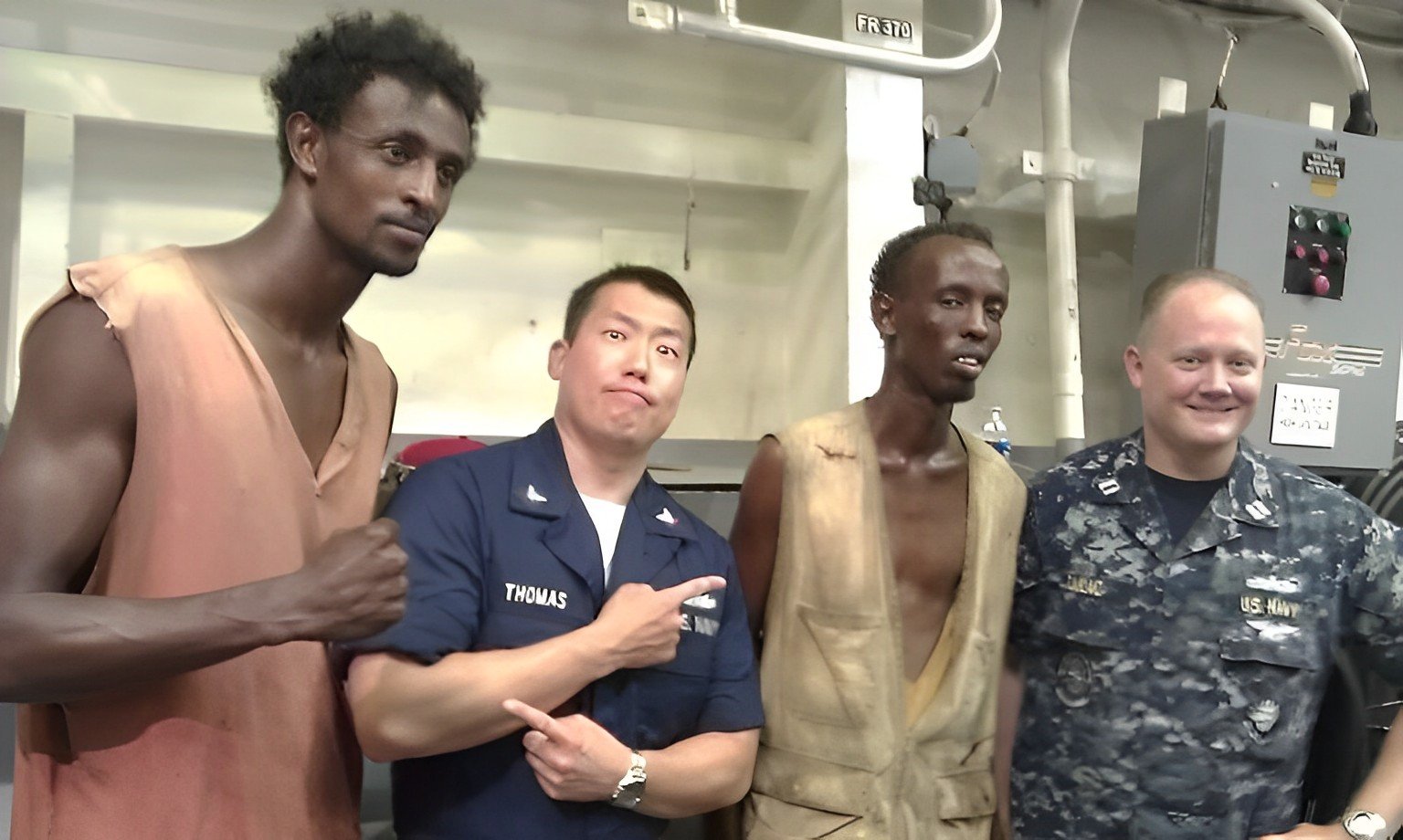
Source: Baltimoresun
Unfortunately, not all cases of pirate raids have been resolved like this previous one, and according to Forbes, it is estimated that Somali pirates gathered around 150 million dollars only in 2010—primarily by getting ransom money from hijacking ships.
Efforts To Stop Piracy
There seemed to be no end to the pirate problem. Crossing the Gulf of Aden was becoming a near-impossible task for any boat. That’s when the United Nations decided to step in by introducing different policies to improve the situation.
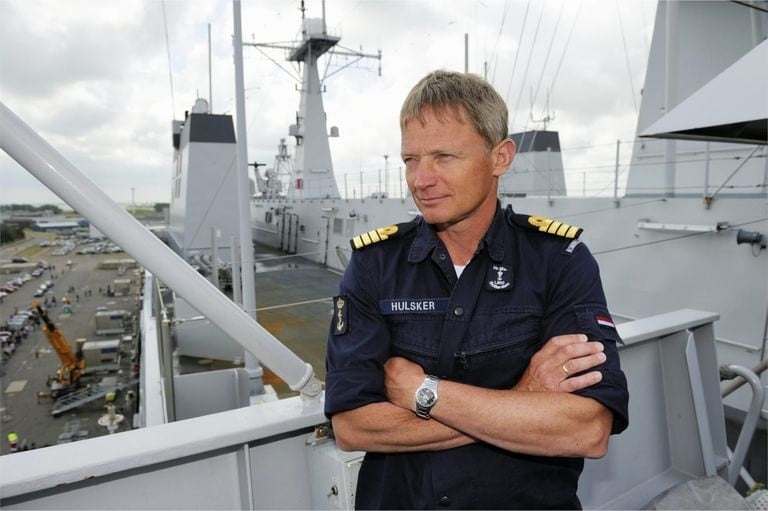
Source: Mediafaxfoto
NATO, The United States, The EU, Russia, and China all got involved in patrolling the area from the criminals that were threatening the busy area. Amongst these efforts are stricter regulations, training for Somali coast guards, and prosecuting pirates in other countries.
On The Other Side Of The World
Meanwhile, on the other side of the world, life went as usual, unbothered by problems that seemed too foreign to matter—except for Kiyoshi Kimura, a Japanese man who cared about solving tricky problems, always with good humor.

Source: Tumblr
As a youngster, he had ventured into becoming a pilot for the Japan Air Self-Defence Force. But life had other plans for Kimura, and after an unfortunate mishap, his eyesight was affected, which meant that he wouldn’t be able to fly an aircraft again.
A Man Of Many Talents
Kiyoshi isn’t the type of person that simply gives up, and after he left the Air Force, he ventured into other businesses. For example, at one point in his life, he sold encyclopedias to pay for his tuition at Chuo University.

Source: Insider
After graduating, he began a business selling cut fish to sushi restaurants. At first, the fish he collected were meant to be discarded because of their size, but with meticulous technique, he managed to get enough high-quality meat from them for reselling.
Visionary Ideas
Mr. Kimura is a visionary, and because of that, he’s also a great businessman. After a series of small endeavors, he then jumped toward a new career that would change his life forever: a 24-hour sushi restaurant.

Source: Tumblr
Sushizanmai opened in 2011 and started as a single restaurant. The idea was to make high-quality, delicious sushi with only the freshest ingredients for an affordable cost so that everyone could enjoy it. Naturally, it became an immediate success, and Mr. Kimura soon became known as the Tuna King.
A Restaurant Chain
Sushi Zanmai’s success didn’t stop. Nowadays, it has become a popular chain with over 50 restaurants! Most of them are located in Japan’s capital, Tokyo, but some others can be found throughout the country. All of them with the top-notch standard the Tuna King is known for.

Source: Tumblr
Curiously, Zanmai is the Japanese word for luxury or indulgence. And that’s what people go to do there, with its constant 5-star ratings in food magazines and honorable mentions in various travel blogs. Sushi Zanmai is a staple.
The Tuna King
But the real story behind Mr. Kimura’s nickname isn’t just because of his acclaimed sushi chain; it’s because of his love for tuna. In 2019 he became the world record holder for buying the most expensive tuna at an auction.
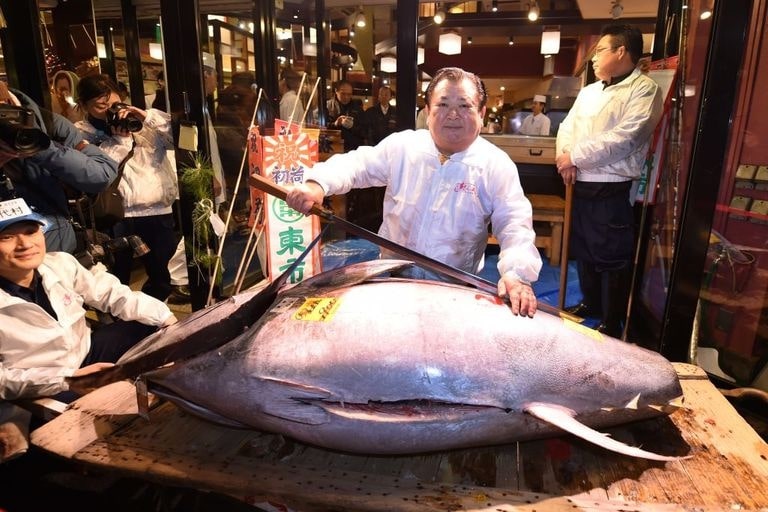
Source: Diariocorreo
The Tuna King spent around 3.1 million dollars on a 278 kg bluefin tuna. He’s been the highest bidder at the annual Japanese new year’s auction for 8 out of 9 years since 2013. That’s a lot of money (and fish)!
Sushi For Everyone
Even though Mr. Kimura loves his lavish fish spending, he is determined to always keep the price of his products at Sushi Zanmai affordable and top-quality. He truly believes that everyone should be able to enjoy great sushi without the financial burden.
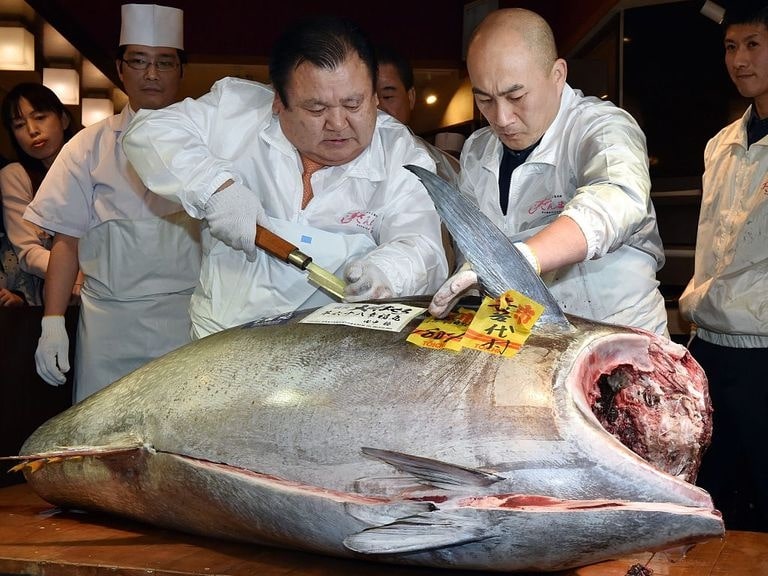
Source: Skaties
He always hosts a tuna-cutting show after acquiring the fish. And it was even rumored that some of the luxurious bluefin tuna he acquired was used as sushi in some of the restaurants without bumping up the price tag, but that gossip has never been confirmed.
Giving Back
Mr. Kimura doesn’t only offer affordable sushi at his restaurants. He does his part in giving back to the community, especially to those in need. He understands the importance of opportunity, and that’s why he offers apprenticeships within his company and courses to become a sushi master.

Source: Twitter
Another very charitable action Mr. Kimura did in the past years was after the 2011 earthquake in Japan. He personally handed out over 1,300 sushi plates to graduates and students affected by the catastrophe.
A True Philanthropist
It is no secret that Kiyoshi Kimura is an outstanding philanthropist, but he doesn’t only care about helping the people around him. So when he heard about the problems happening in Somalia, he was taken aback and decided that something had to be done.
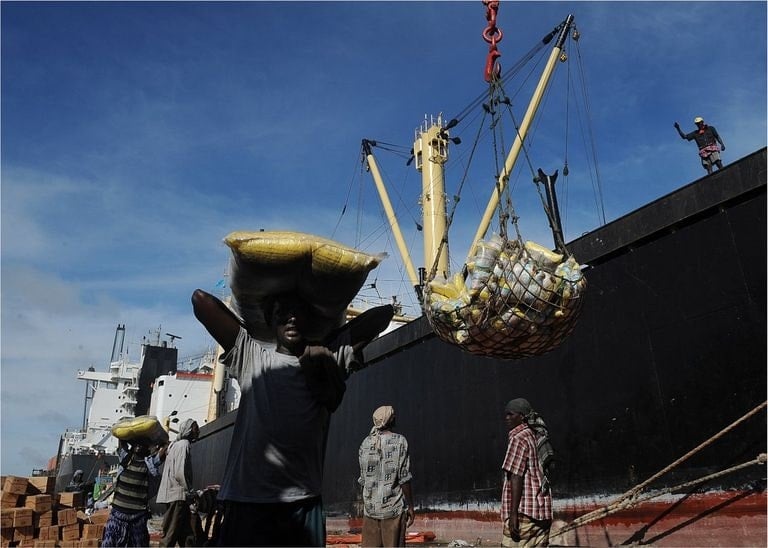
Source: Mashable
While looking for fish suppliers, he became interested in finding a way of helping communities in need and getting high-quality products that would keep up with the demand of his busy restaurant emporium. His solution would be as strange as it was brilliant.
The Answer To His Call
Mr. Kimura reportedly started visiting the country in 2012, but keeping his plans secret, nobody expected what his real intentions of visiting were. Somalia’s reputation was tarnished by its piracy problems, but that did not impede Kimura’s interest in its bountiful waters.
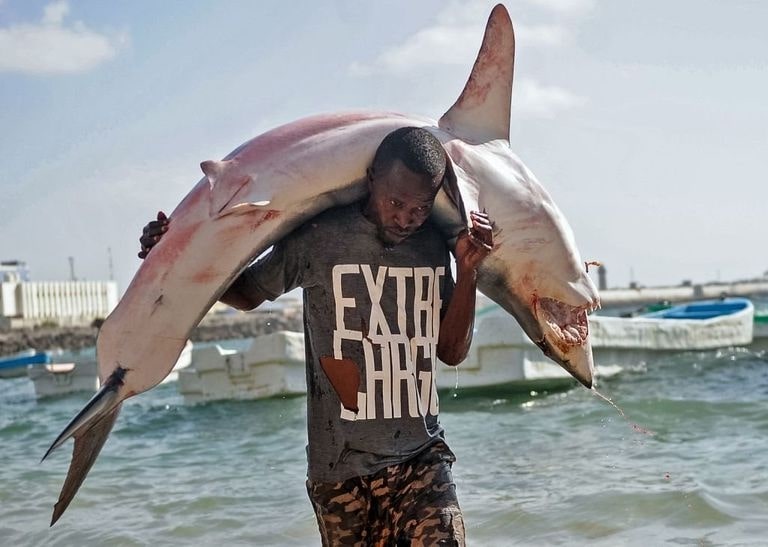
Source: Telegraph
The abundance of yellowfin tuna made the country a seriously attractive place for the international fish market—but the danger was imminent, so nobody dared to go there. Much less to pursue investment in the country’s formerly thriving but now-depleted fishing industry.
An Unorthodox Meeting
Kiyoshi Kimura is a businessman who wears a suit and ties almost every day of his life. His image is impeccable and part of his trademark. So it’s difficult to imagine how he managed to set up a meeting with Somali pirates.
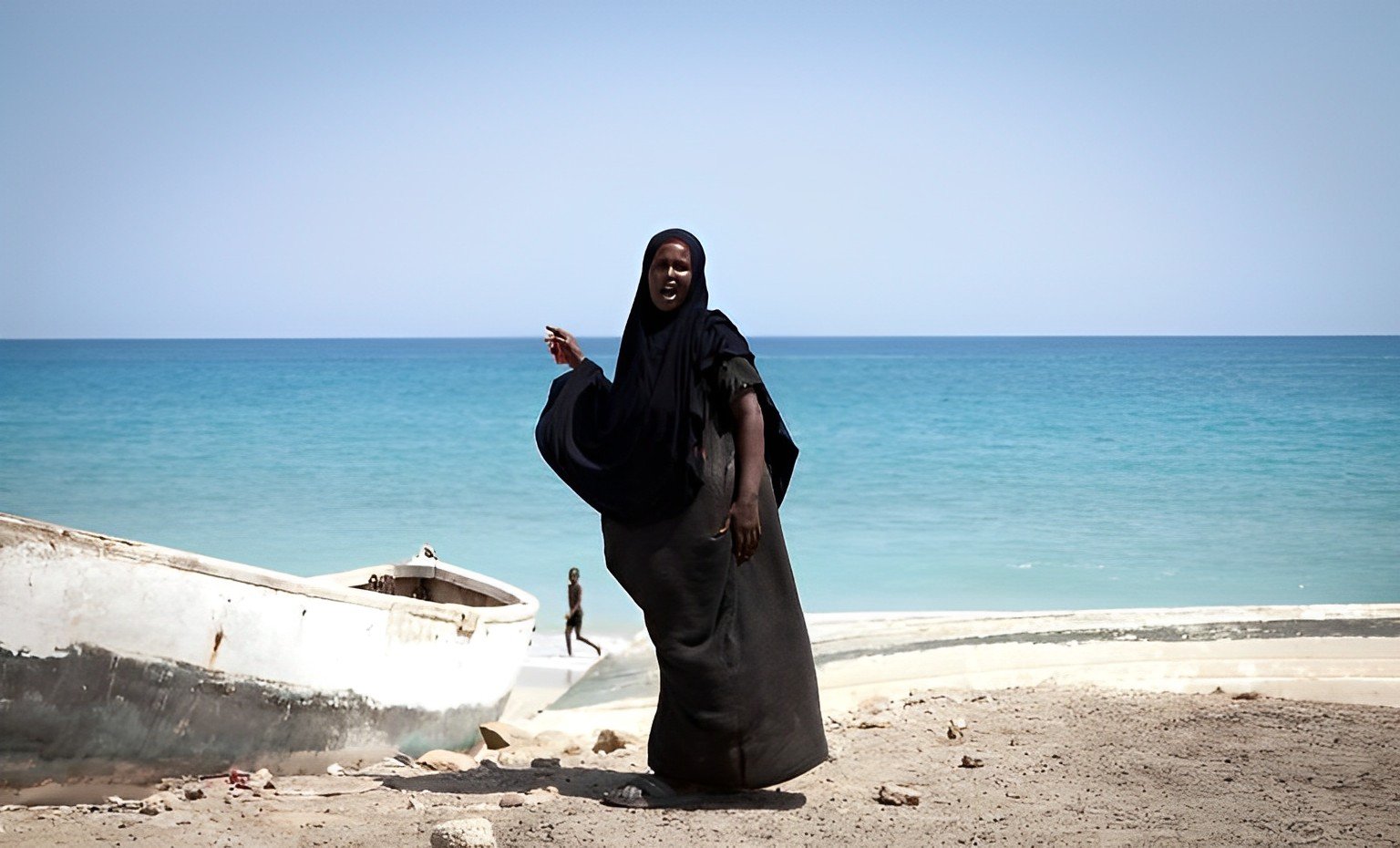
Source: Corbisimages
He wanted to know firsthand how people had experienced the past years and what was the root cause of the lack of fishing industry in the country. In the typical Kiyoshi Kimura style, he did a little digging. What he found was very surprising, to say the least.
The Core Of The Problem
It happens that after the country’s civil war and the subsequent political turmoil, Somalia was in desperate need of economic influx, but there was none. Hence why, many people turned to piracy to sustain themselves and their families.

Source: Tumblr
It wasn’t for spite—it was a means to survive. There were no jobs, and a lot of people lost their homes during the conflict. So becoming a pirate was the only way to build back what had been shattered throughout the struggle.
A New Business Model
What seemed like a hopeless situation was suddenly a new business opportunity for Kimura, who wanted to help the community from its rough position. So he came up with the idea that would change the lives of a lot of Somali families.
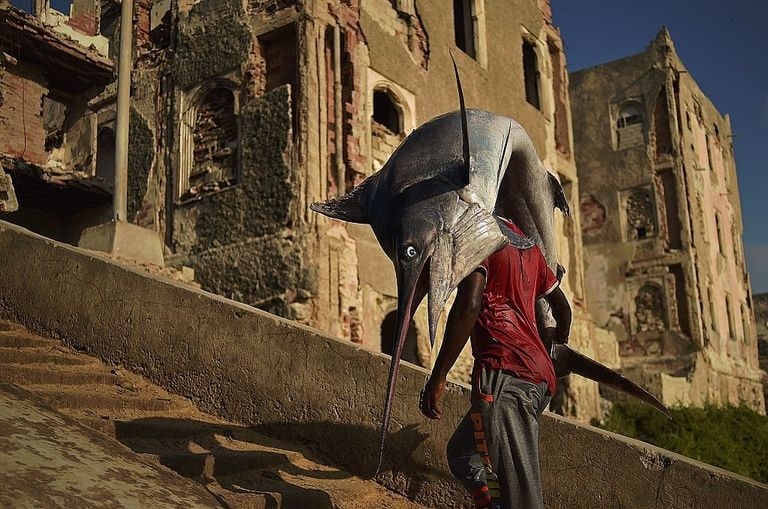
Source: Theatlantic
They would use the sea, as they had done before, but with a renovated infrastructure and a business model that would benefit both parties—whilst also getting people to back away from lives of piracy and crime. How amazing is that?
An Ambitious Objective
The idea of resetting the fishing industry in a country plagued with corruption and political turmoil is a near-impossible task. But the Tuna King is an ambitious man with an excellent vision for the business, and he was positive that his plan would work.
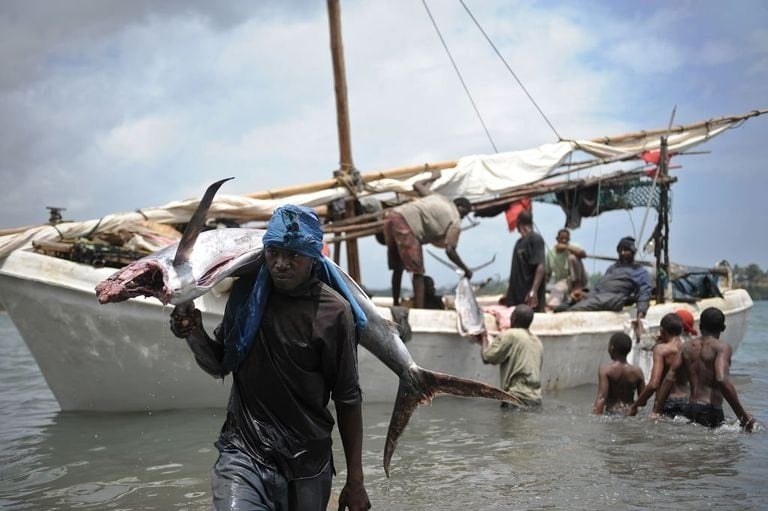
Source: Tumblr
He started by buying top-of-the-line fishing tools, materials, and ships. He also made the fishermen go through specialized training courses for tuna fishing. But most importantly, he was able to sign essential trade agreements that would ensure the continuity of the project.
Sharing Is Caring
Kiyoshi Kimura didn’t want just to benefit himself and his restaurant empire. Even though he invested in the plan with his own money, he assured them he would buy the fish from the Somali fishermen and allow them to trade with other international markets as well.
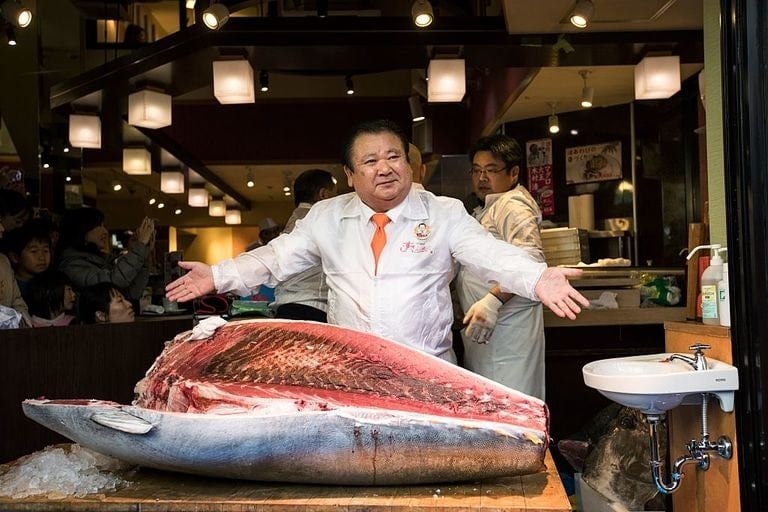
Source: Vortl
In order for the fishermen to compete with the international market, Mr. Kimura helped them to gain access to the Indian Ocean Tuna Commission. This was a big deal, as it’s a recognized institution with over 30 members and access to the global market.
Confident In His Investment
“Many countries and international organizations are providing support, but their activities are very superficial and not always useful. It’s necessary to stand in their shoes and understand their troubles,” said Kimura in an interview for Harbor Business magazine.
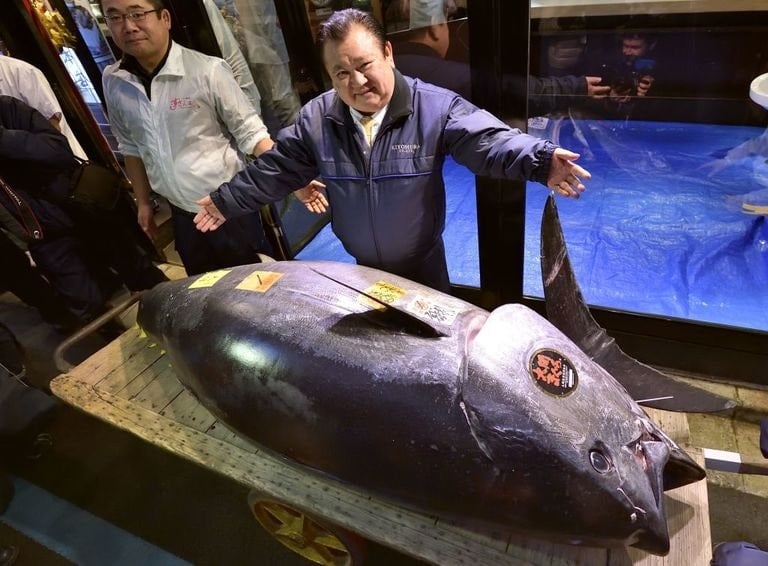
Source: Dnevnik
Buying licenses and equipment is a costly undertaking, but he knew he was doing the right thing. This support would prove a sustainable way to ensure a bright future for his new fish suppliers, as well as motivation for other investors to support economies that need it the most.
High-Quality Tuna
The tuna caught in the Indian Ocean is of superb quality, and with the right technique, it can be sold in the high-end market for a good amount of money. This is a good selling point for Sushi Zanmai.
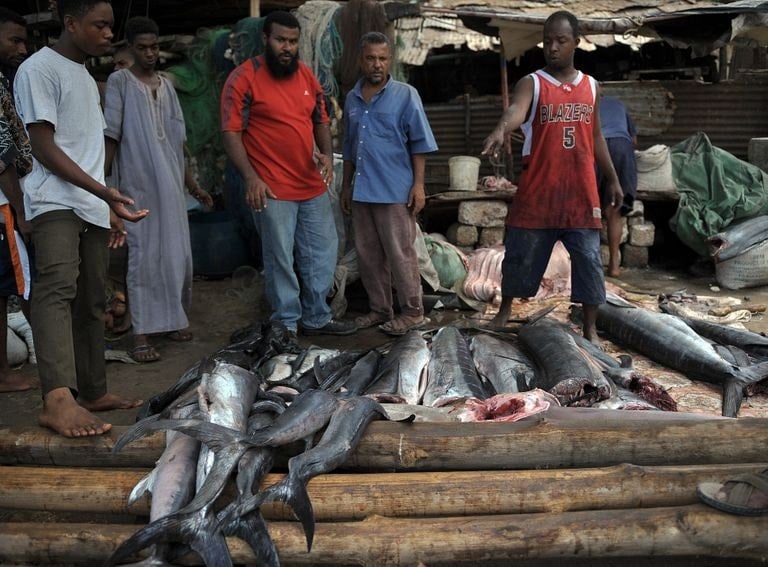
Source: Tumblr
By buying fish from the Somali market, he would help boost the local economy and help new generations get involved in the trade. Another fun marketing tactic was advertising that the fish inside some of the dishes on the menu were sourced directly from former pirates.
Pirate Attacks
There is no way to end the piracy business altogether, but giving people another option to make a living sure helps. It’s recorded that from 2009 to 2012, the annual average of pirate attacks was over the 200 mark.
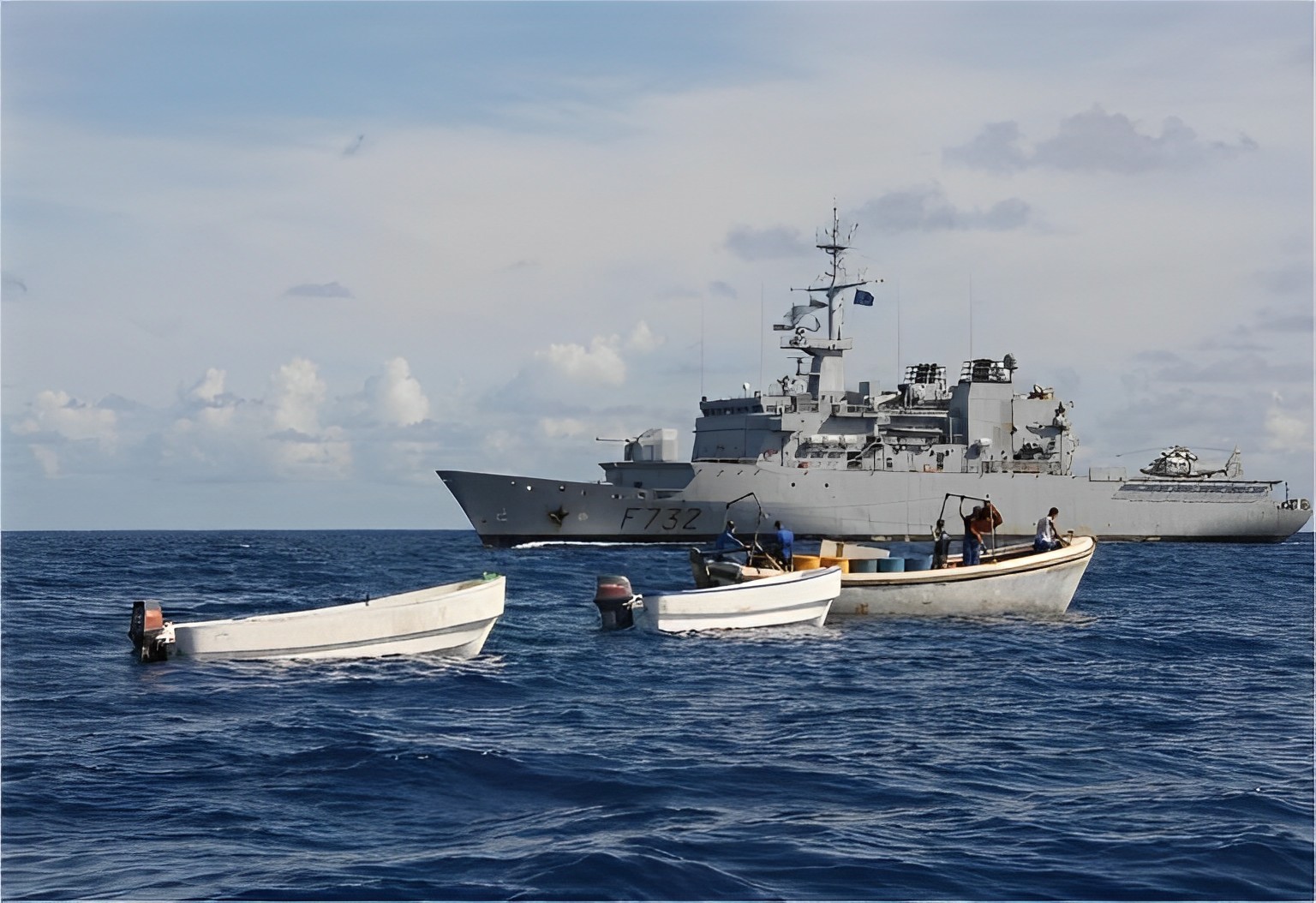
Source: Archiwum
Nowadays, thankfully, the numbers have lowered significantly. Of course, Mr. Kimura’s efforts aren’t the only ones that have impacted the area, but they have helped. It isn’t typical for companies to invest in areas of turmoil, so it is a great relief that there is a lot of interest in Somalia.
A Good Listener
Hijacking and stealing are no longer the main concern of those traveling through Somali waters. As the pirate incident index fell to nothing, it’s important to acknowledge the acts of wise investment from people like Mr. Kimura.

Source: Dnevnik
Unlike many investors, he didn’t only send money and expect the problem to go away. He worked hard and sat with people. He actually listened to their problems and needs, something that nobody had done before. This shows a very human and empathic quality from Mr. Kimura.
A Joint Effort
Without the United Nations and all of the countries that have made efforts to keep the area safe, it probably would have been trickier to solve the pirate problem. But because the pirates didn’t necessarily spring their schemes out of fun, but a necessity.
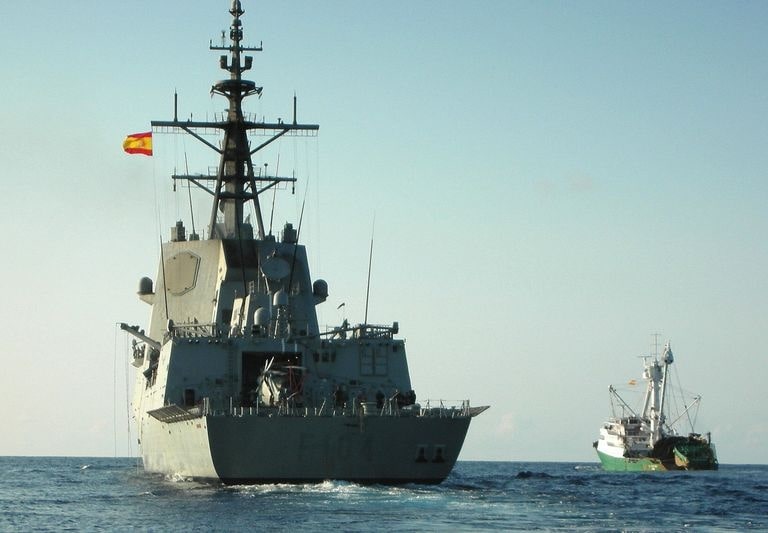
Source: Alamy
By offering stable jobs as well as an array of skills, there is a lot more hope to be had. NATO ships still patrol the area nowadays, and these military-grade vessels tend to be enough to scare off small-time pirates.
Escorted Ships
Whenever a civilian ship crosses Somali waters, it still has to do so with caution. Just because there have been no incidents in the past few years doesn’t mean the area is safe to navigate. The area is still riddled with pirates willing to jump at the opportunity of an unsuspecting passerby.
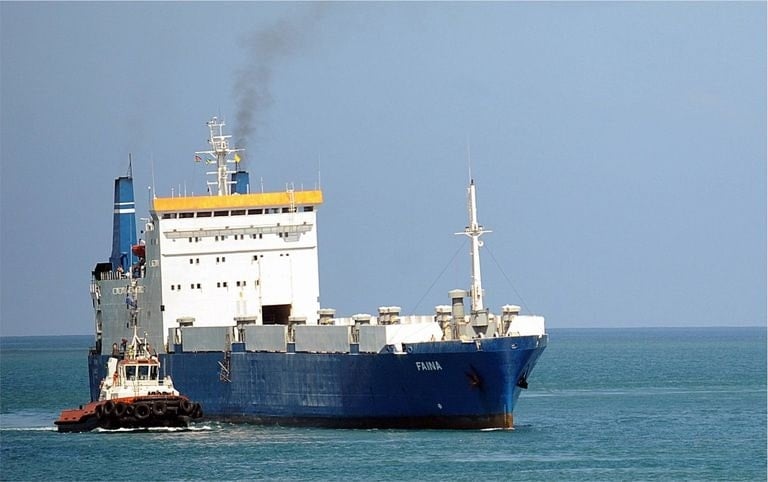
Source: Aljazeera
In some cases, boats can ask for protection from the patrolling ships supplied by NATO’s efforts in the area. Traveling with escorts intimidates the pirates, hence why there have been so few encounters of late.
Honorable Mentions
Nonetheless, Mr. Kimura’s efforts haven’t gone unnoticed. The fishing plan may not be the sole reason that Somalia’s pirate problem has fizzled away so dramatically, but there is a lot of merit to the program. Many people followed the viral story as it took over the headlines.

Source: Tumblr
In 2013, the government of Djibouti gave Mr. Kimura a medal for his anti-piracy efforts. And in 2022, King Felipe IV of Spain honored him with the “Encomienda” civilian order of merit, which included a bedazzled medal for his services.
Doing The Right Thing
Kimura realized he was doing the right thing when he approached the Somali pirates, sat down with them, and listened to their stories. He knew how to do the right thing for other people, unlike other corporations or countries that already had the infrastructure and could have done so at a whim.

Source: Tumblr
It could’ve been much cheaper for him to find fish in other countries, but his philanthropist soul led him to do the right thing. Now, he’s a hero in his homeland as well as Somalia.
Not Everything Has Been Peaceful
Just because the main thrust of piracy seems to have vanished, danger still lurks on the sea. Although pirate attacks halted for a few years, some isolated incidents made it clear that caution must be practiced, especially for ships navigating from Djibouti into Somali ports.
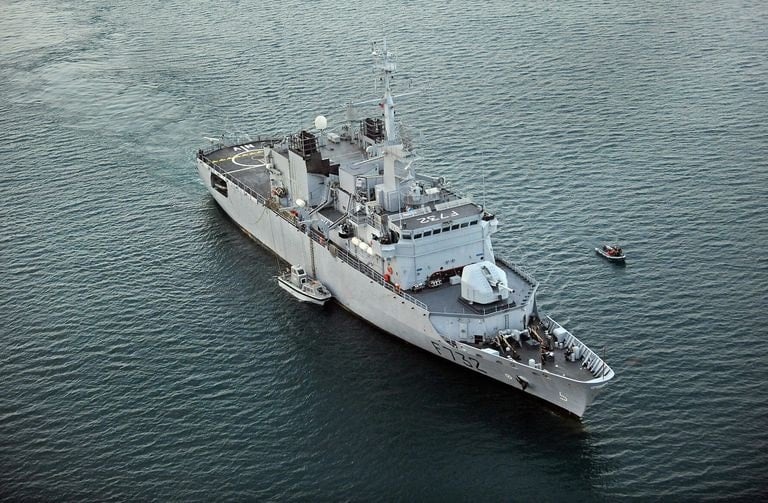
Source: Inoussa
One of the recent cases was in 2017 when pirates intercepted an oil tanker. Luckily the event didn’t escalate into a tragedy because the marauders realized the vessel was commandeered by a Somali crew and left without asking for ransom or anything of the sort.
Another Attack
Again in 2017, just a week after the oil tanker incident, a Yemeni fishing boat was raided by pirates. The criminals left the terrified crew on dry land unharmed but stole the vessel. Their intention was to use it to attack and hijack larger unsuspecting ships.

Source: Bjnahan
Fortunately, their plan didn’t succeed, and the pirates were arrested immediately by the local police. This pair of events raised a new concern for companies and alerted the fishermen and seafarers that work in the area.
Unfortunate Incidents
The incidents in 2017, unfortunately, weren’t the last, and a bulk carrier ship was attacked a year later. Fortunately, the security personnel were well trained and proved very efficient, so they were able to avoid the hijack and considerable damage to the vessel. But it was a very close call.
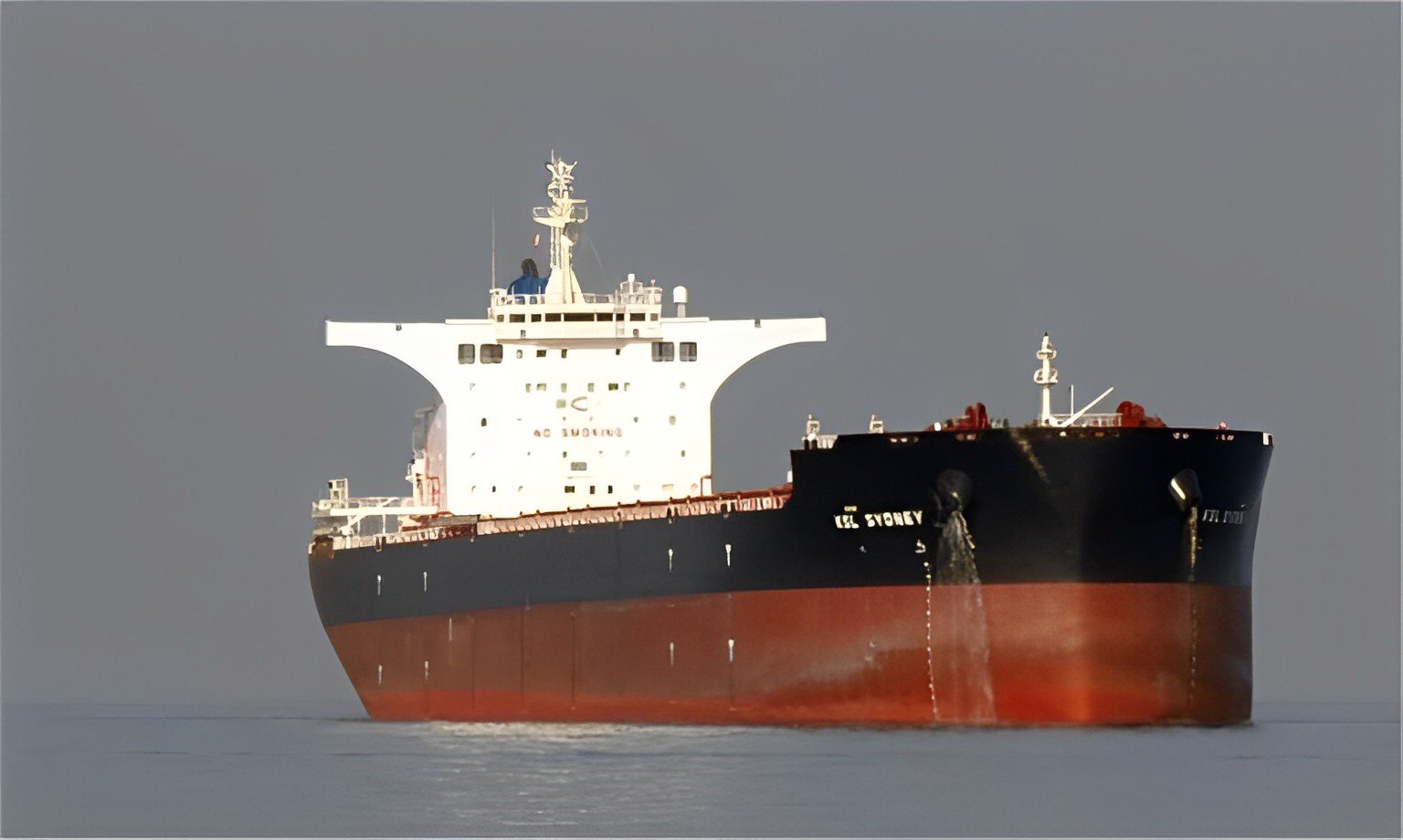
Source: Denizhaber
The MV KSL Sydney was on its way to Mogadishu—the capital of Somalia and one of the most important ports in the country—when four young pirates got on board the ship and threatened the crew.
The EU’s Efforts
The EU’s Naval Force launched an investigation and found the pirate boat which the culprits had plotted their attacks from. They eventually dismantled it and managed to find the masterminds behind the operation. Needless to say, they got arrested and sent to prison.
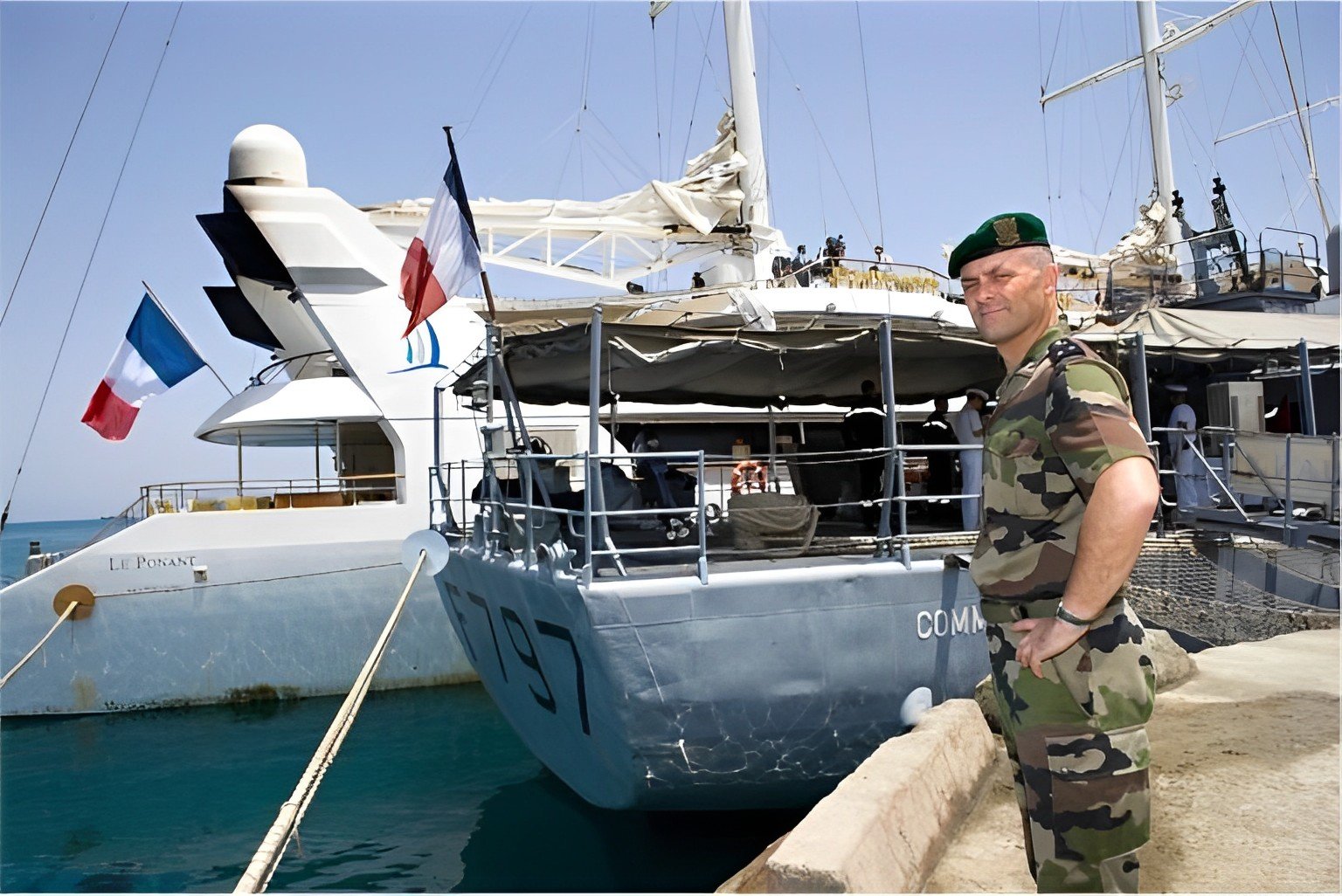
Source: Corbisimages
But still, this raised the UN’s concerns about a comeback in illegal activities. So in 2018, the United Nations decided to extend the security protocols and ensure patrolling of the Horn of Africa’s waters as before, during the attacks.
A Blueprint For Other Nations
Mr. Kimura’s fishing operation might not be the end of all problems in Somalia, but it sure is an excellent blueprint for what can be done. Unfortunately, without an organized, centralized government, the country will likely continue to struggle until the political turmoil is settled.
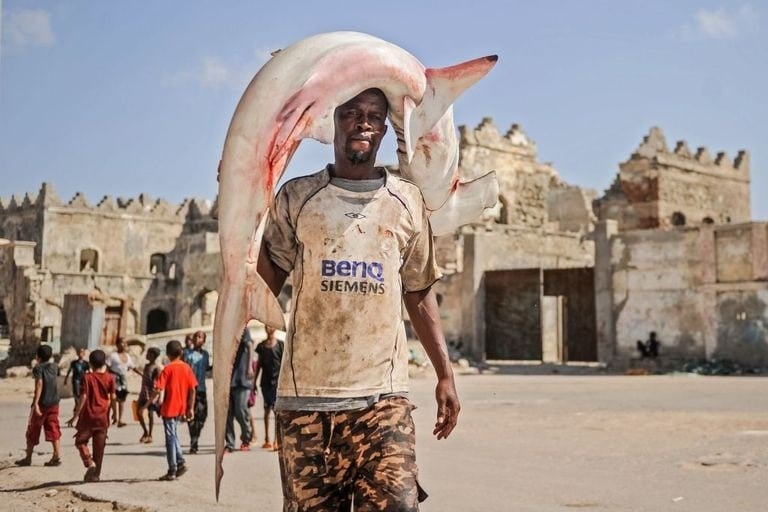
Source: Elpais
In addition, efforts to give the community education and work opportunities are a great way to incentivize people to earn their own money to rebuild their economy, keeping them away from making ends meet through illegal activities such as raiding ships.
A Bright Future
The vast majority of people in Somalia are hardworking, good-natured people that have had to face a lot in the past 40 years. With a little luck, soon, there will be peace in the country, and the economy can thrive.
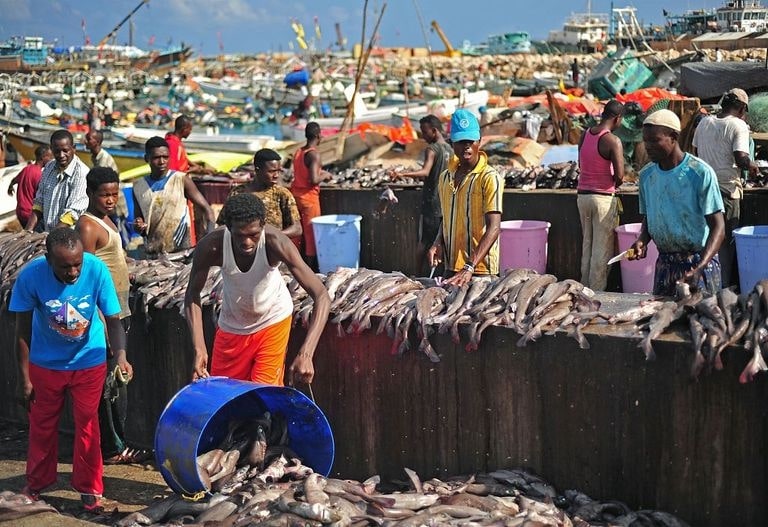
Source: Arabi21
There is a lot of potential for development in Somalia and all of the Horn of Africa region, but because of the lack of infrastructure, it is a very challenging task to build. But thanks to private investors, international programs, and the local government, there is hope for the country.
